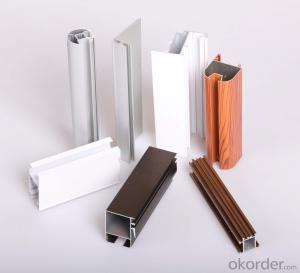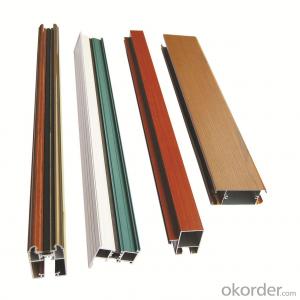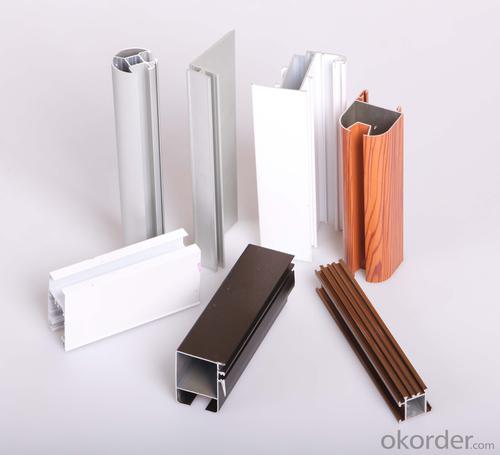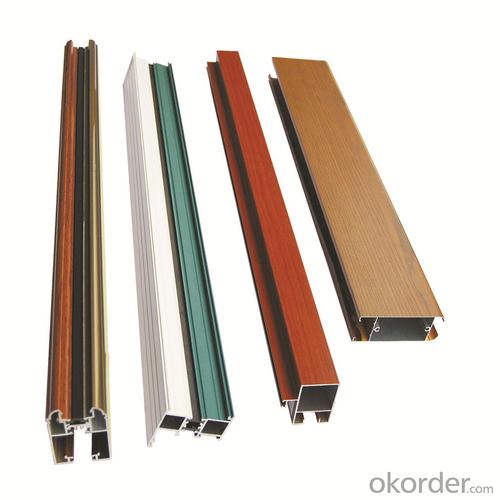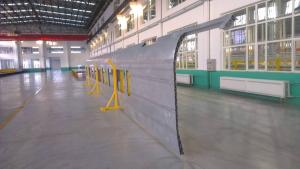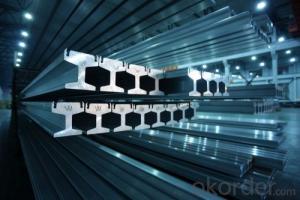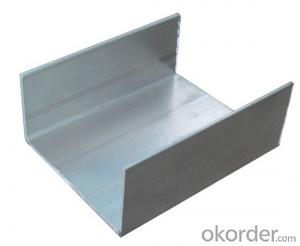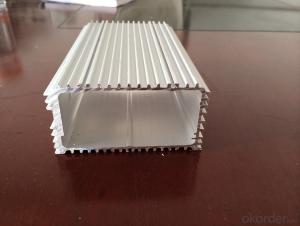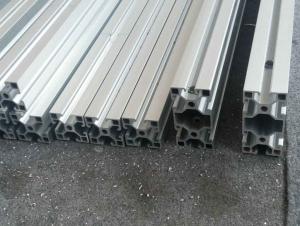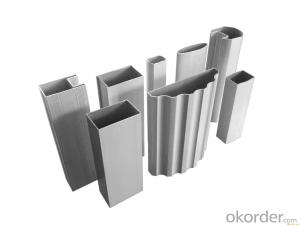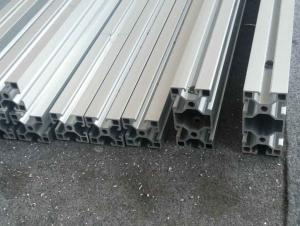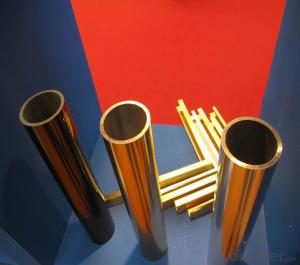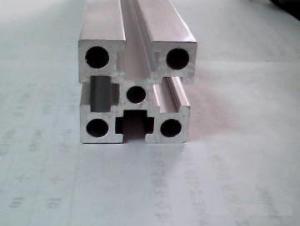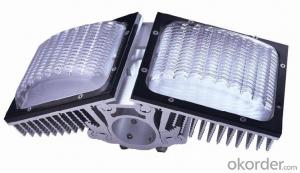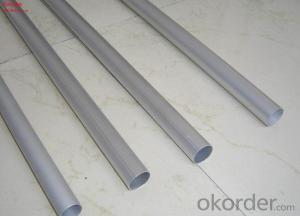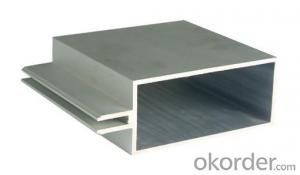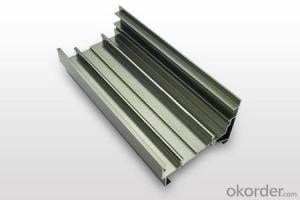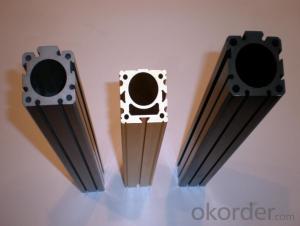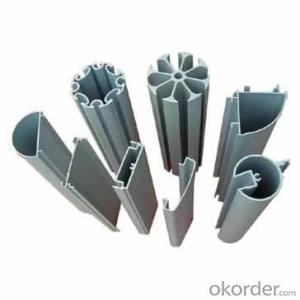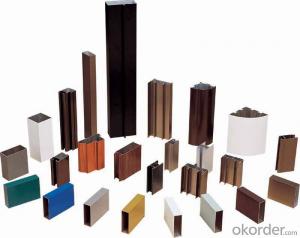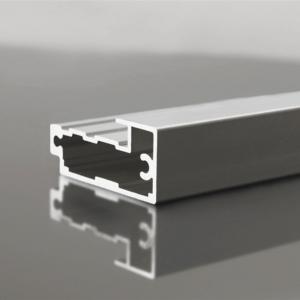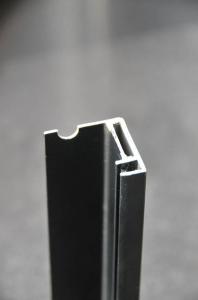LED Tape Light Strip Aluminum Profiles for Furniture Anodized Aluminum Frame
- Loading Port:
- China Main Port
- Payment Terms:
- TT OR LC
- Min Order Qty:
- -
- Supply Capability:
- -
OKorder Service Pledge
Quality Product, Order Online Tracking, Timely Delivery
OKorder Financial Service
Credit Rating, Credit Services, Credit Purchasing
You Might Also Like
Material | Alloy 6063,6061,6005or according to customer’s choice |
Temper | T3, T4, T5, T6 |
Surface | Anodize, electrophoresis, powder coating, PVDF coating, wood grain painting, matted, etc. |
Color | Any colour based on Standard Germany RAL Mark |
Length | Coating 6.5 meters, Anodizing 6.5 meters, Mill finish 5 meters |
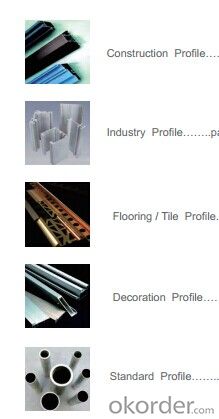
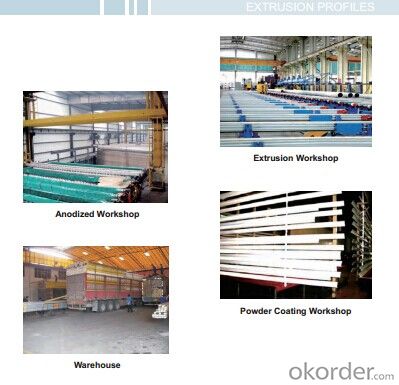
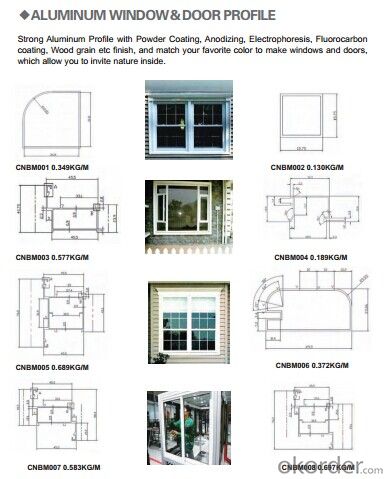
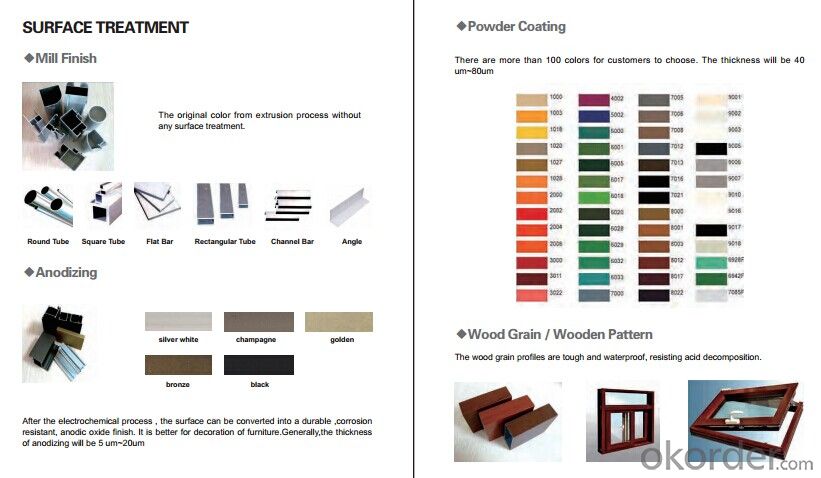
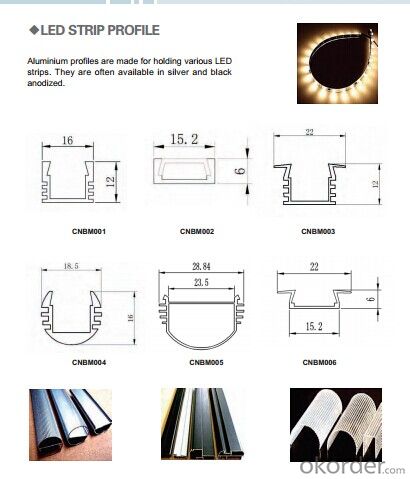
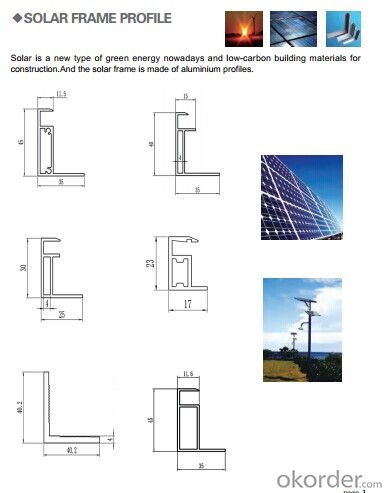
- Q: What are the different surface treatments for aluminum profiles?
- Aluminum profiles can be treated with various surface treatments, each offering its own advantages and characteristics. Anodizing is a popular method that involves forming a protective oxide layer on the aluminum surface. This enhances the corrosion resistance and allows for the aluminum to be dyed in different colors, creating a sleek and modern finish. Another commonly used technique is powder coating, where a dry powder paint is applied and cured under heat to create a durable coating. This provides excellent resistance to scratching, chipping, and fading, making it perfect for applications that require long-lasting and vibrant finishes. Painting is a versatile option that allows for a wide variety of color choices and finishes. Aluminum profiles can be painted using different methods, such as spray painting or electrostatic coating. This creates a smooth and attractive appearance suitable for both indoor and outdoor use. For a distinctive and decorative look, brushing is a technique that involves brushing the aluminum surface with a wire brush or abrasive material. This creates a textured finish, often chosen for architectural and design applications that require a unique and stylish appearance. Ultimately, the choice of surface treatment for aluminum profiles depends on the specific requirements of the application. Factors such as corrosion resistance, durability, aesthetic appeal, and functionality all play a vital role in determining the most suitable surface treatment method.
- Q: What are the methods to reduce waste from aluminum profiles in construction?
- <p>To minimize waste generated from using aluminum profiles in building construction, consider the following strategies: 1) Accurate planning and design to reduce offcuts. 2) Utilize modular designs to maximize material usage. 3) Implement recycling programs to repurpose leftover profiles. 4) Opt for suppliers that provide aluminum profiles cut to exact specifications. 5) Educate workers on proper handling and waste reduction techniques. 6) Use digital tools for precise cutting to minimize material waste. 7) Encourage the use of aluminum due to its high recyclability and low energy consumption in the recycling process.</p>
- Q: What are the strategies to reduce the environmental footprint when utilizing aluminum profiles in construction projects?
- <p>To minimize the environmental impact of using aluminum profiles in construction, consider the following strategies: Use recycled aluminum whenever possible, as it requires significantly less energy to produce than new aluminum. Opt for energy-efficient manufacturing processes and choose suppliers with strong environmental credentials. Design for disassembly and recycling to facilitate the reuse of aluminum profiles at the end of their life. Implement sustainable construction practices that reduce waste and emissions. Finally, educate stakeholders about the importance of sustainable materials and encourage the adoption of eco-friendly practices throughout the construction process.</p>
- Q: This question asks for criteria or methods to determine if a specific aluminum profile is appropriate for a given project.
- <p>To determine if an aluminum profile is suitable for your project, consider the following factors: 1) Load-bearing capacity - Check if the profile can withstand the weight and stress it will be subjected to. 2) Dimensional requirements - Ensure the profile's size and shape match your project's specifications. 3) Corrosion resistance - Verify if the profile is resistant to the environmental conditions it will be exposed to. 4) Surface finish - Confirm if the profile's finish meets your aesthetic and functional needs. 5) Compatibility with other materials - Make sure the profile can be effectively joined or integrated with other materials in your project. Consult with an engineer or the profile manufacturer for specific recommendations based on your project's unique requirements.</p>
- Q: Is it possible to tailor aluminum profiles to fulfill particular design and aesthetic needs?
- <p>Yes, aluminum profiles can be customized to meet specific aesthetic requirements. Manufacturers offer a variety of finishes, colors, and surface treatments to enhance the visual appeal of aluminum profiles. Additionally, the profiles can be cut, bent, and shaped to fit unique design specifications. This customization allows for a high degree of flexibility in creating structures and designs that are both functional and visually appealing, making aluminum profiles suitable for a wide range of applications from architectural to industrial design.</p>
- Q: What are the different color options for aluminum profiles?
- There are various color options available for aluminum profiles, depending on the desired aesthetic and functionality. Some common color options include: 1. Natural aluminum: This is the most basic color option, which showcases the raw and metallic appearance of aluminum. It is often chosen for its sleek, modern, and minimalist look. 2. Anodized finishes: Anodizing is an electrochemical process that creates a protective layer on the surface of aluminum, making it more durable and resistant to corrosion. This process also allows for a wide range of color options, such as black, bronze, gold, silver, and various shades of blue, red, green, and other vibrant colors. 3. Powder coating: Powder coating is another popular method to apply color to aluminum profiles. It involves applying a dry powder to the surface, which is then cured under heat to form a durable and attractive finish. Powder coating offers a vast array of color choices, including standard colors, metallic finishes, and special effects like textures and patterns. 4. Painted finishes: Aluminum profiles can also be painted using liquid coatings. This method allows for a broader spectrum of color choices, including custom colors to match specific design requirements. Painted finishes offer versatility and can be applied with different gloss levels, such as matte, satin, or high gloss. 5. Wood grain finishes: For those who want the appearance of wood without the maintenance, aluminum profiles can be finished with a wood grain pattern. This option combines the durability of aluminum with the warm and natural look of wood, offering a wide range of wood species and finishes. Ultimately, the choice of color for aluminum profiles depends on personal preference, architectural style, desired durability, and the overall design concept.
- Q: Are aluminum profiles suitable for playground equipment?
- Playground equipment can be made from aluminum profiles, which are lightweight and durable materials commonly used in many industries, including playground equipment manufacturing. These profiles are known for their strength and resistance to corrosion, making them perfect for outdoor use. They provide stability and can handle the weight and forces exerted during play. In addition, aluminum is non-toxic and does not rust, ensuring the safety and longevity of the equipment. The versatility of aluminum allows for the creation of various shapes and designs, offering endless possibilities for innovative and attractive playground structures. In summary, aluminum profiles are an ideal choice for playground equipment due to their strength, durability, and safety features.
- Q: Are aluminum profiles suitable for exhibition displays?
- Yes, aluminum profiles are highly suitable for exhibition displays. They are lightweight, durable, and can be easily customized to fit various display requirements. Aluminum profiles also offer a sleek and modern aesthetic, making them ideal for creating visually appealing exhibition displays. Additionally, they are versatile and can be easily assembled and disassembled, allowing for easy transportation and setup at different exhibition venues.
- Q: What are the different types of corner connectors used with aluminum profiles?
- Aluminum profiles commonly utilize several types of corner connectors for joining. These connectors facilitate the creation of diverse structures like frames, enclosures, and shelving units. One prevalent corner connector is the 90-degree angle bracket. It possesses a right angle shape with holes on each side to accommodate screws or bolts for fastening the profiles together. The 90-degree angle bracket is adaptable and suitable for various applications. Another corner connector is the 45-degree angle bracket, similar to the 90-degree angle bracket but designed for a 45-degree angle joint between profiles. It finds use in applications requiring slanted or angled structures. T-slot corner connectors are also popular. They have a T-shaped slot for easy insertion of profiles. These connectors are ideal for applications that prioritize adjustability and flexibility, allowing for effortless repositioning and modification of the structure. Some corner connectors are specifically designed for particular profile types, such as the end cap connector. This connector caps off the profile's end, providing a polished appearance and protection against damage. Furthermore, various other corner connectors exist, including corner gussets, angle plates, and corner brackets. Each connector type offers unique features and advantages, catering to different applications and requirements. In summary, the assortment of corner connectors available for aluminum profiles offers a wide range of options for joining and assembling structures. These connectors provide strength, stability, and versatility, making them indispensable components in aluminum profile-based construction projects.
- Q: How do aluminum profiles perform in terms of magnetic properties?
- Aluminum profiles lack strong magnetic properties since they are not magnetically responsive. The reason behind this is their atomic structure, which hampers the alignment of magnetic domains required for magnetism. Consequently, aluminum profiles remain largely unaffected by magnetic fields and do not exhibit any notable magnetic characteristics.
Send your message to us
LED Tape Light Strip Aluminum Profiles for Furniture Anodized Aluminum Frame
- Loading Port:
- China Main Port
- Payment Terms:
- TT OR LC
- Min Order Qty:
- -
- Supply Capability:
- -
OKorder Service Pledge
Quality Product, Order Online Tracking, Timely Delivery
OKorder Financial Service
Credit Rating, Credit Services, Credit Purchasing
Similar products
Hot products
Hot Searches
Related keywords
